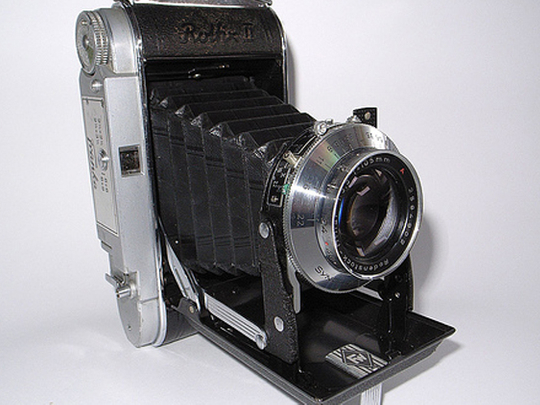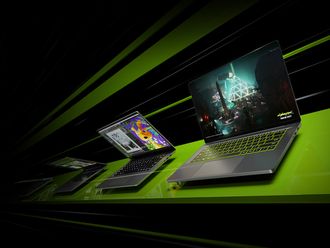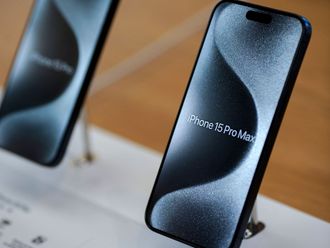
Remote controls idle on set-top boxes, the objects of their spent beams long since gone. There is a record player whose turntable last turned a decade ago. A VHS: say no more. A radio whose tuning knob disappeared years ago, but which, intact, made a wonderful childhood birthday present and which, therefore, is waiting for a better ending than disposal. Although, of course, there is no other ending: that is why it’s still on the mantelpiece. Best leave the inventory there.
People hold on to outdated technology for any number of reasons, from sentimental through aesthetic or financial to a determination to outfox the future by showing that the old stuff still works. And, sometimes, simply to disprove the idea that there is no progress without renewal. After all, if you don’t flinch at the decrepitude of your belongings, perhaps you don’t flinch at the decrepitude of yourself. Maybe we are all old-tech.
We asked some of you why you were holding on to something that technological advances had left behind, but which you could not bring themselves to relinquish. Here are your stories.
Toby Strickland, Ruddington: Motorola Talkahead mobile phone
It was 1998. I was working in a community day service for people who had been excluded from traditional day services. The whole idea was that we would support people to access community services take them to the cinema, library, bowling, cafes, colleges. We got up and running and realised that, health and safety-wise, we had lots of lone workers with quite challenging people. We had pagers to start with, but to respond, you had to find a phone box.
Eventually, we managed to convince people at the NHS that we needed mobile phones. It was all very exciting we didn’t have personal mobiles. I just love the “brickness” of it. And the pull-out aerial you had to do something before you made a call. The phone only used to ring when something difficult was happening.
“I’m on a tram, and so-and-so’s jumped off and run into the fields.” “I’m in McDonald’s and so and so’s locked themselves in the toilet!” It was great to have, but I used to dread the phone calls. I still have that feeling now. It’s in a drawer up in the top room, and every now and then when conversations go to your first mobile phone, I get it out and say: “Look at this baby!” I’ve had other phones and sent them off to be recycled, but this one has more emotional baggage.
Phil Brown, Exeter: Franka Rolfix camera
It’s the camera that we used to take on our family holidays, when we went to the seaside; I was about four. Photography was more of a ceremony in those days. If you were feeling flush, you took 16 pictures on your whole holiday. You thought much more about what you wanted to take. What you came back with were staged family photographs: “Here we all are on holiday.”
I was thinking about that; thinking it would be nice to get an old camera you can still get the film for them. I started looking around on eBay. I happened to go home to visit my mum. I said: “I’m thinking of buying an old-fashioned folding roll film camera like the one Dad used to have.” She said: “Oh, do you mean like that one I’ve got in the cupboard?”
Sure enough, that one in the cupboard was the one my Dad used to have. My mum is a keen thrower-outer of things she considers to be past their stage of usefulness. It’s many years since my father died, in 1968.
Afterwards, she got rid of a lot of things that I would have thought would have some sentimental attachment. I expected this camera to have disappeared a long time ago. It turns out they bought it as a shared present to each other, and took it on honeymoon.
She would have hung on to it herself if it wasn’t for the fact that I was going to use it. I recognise I have quite a responsibility. The lens is good and the shutter is good. I haven’t quite thought about my first project yet. My dad was always the one who used the camera. It is a key image in my memory of him. It is probably going to get used for a bit of landscape photography. We actually had family holidays down here in Devon.
There are certainly photographs in an album: a famous beauty spot in the middle of Dartmoor, a place where a couple of rivers meet, some stepping stones. It would be fun to go back now and see what I can do with it.
Simon Rogers, London: Sony NT2 Digital Micro Recorder
I’ve always loved recording sounds that are around you. I used to do a lot of remixing. I bought this in 1992, before sound libraries were commercially available. It was quite expensive, at least 1,000. We used to record all sorts of things. Noises on the tube, waves, clubs, gas pipes: there were yellow pipes being installed everywhere. I put the recorder inside and hit it: a kind of springy reverb sound. You’d go back and put it into a sampler or something.
It conked out in 1999, got clogged up with fluff from being carried around in my pocket. I sent it off to Sony and they said they couldn’t fix it. I just put it away. There were other exciting bits of technology coming out. Then I found the tapes again, in an envelope, knocking around in the studio. They looked pristine.
I looked at some of the labels and couldn’t remember writing them. I had to find out what was on them. I thought, I wonder if you can still get hold of those machines? I found one for only a few hundred dollars. There were quite a few things that I had forgotten about. Hearing the children’s baby voices. One of the guys I worked with died recently; there’s quite a lot of him on the tapes. I think what I might do is try and get some sort of project where I would use that tape machine specifically. But I have transferred everything to the computer in case this one breaks.
Sue Nicholson, Whitley Bay:Kenwood mixer
I bought this about five years ago but it dates from the mid-70s. I had friends who were spending three or four hundred pounds on KitchenAids or Kenwoods. I’d always used a food processor but I had started to make cakes with my goddaughter. I had done a three-layer sponge for one of her birthdays, by hand you don’t get the air into a mix with a food processor.
I went to the auction place in Whitley Bay where I live. There was a big cardboard box. It had the basic Kenwood and loads of attachments. I paid 22 for the whole lot. I’ve got quite a small kitchen but I use the mixer so often, it sits on my kitchen bench. I make cakes, scones, I do mashed potato in it.
My goddaughter loves making cakes. We’re going to make one tomorrow. If it broke, I wouldn’t throw it out. I would get the spare parts and fix it. I wonder about who owned it before me, but it’s come to a good home.
Bakers divide into two distinct camps. There are Kenwood users and there are KitchenAid users. I think KitchenAids are for somebody who wants something that makes a statement by the way it looks. I would prefer to have something that does the job.
Chris Hardy, Royston: Hewlett Packard 41C calculator
I got this calculator just after I joined Fine Fare supermarkets in 1982. I was doing market research, analysing a lot of our sales work. I needed something that I could set up, programme, and give to my clerk, so she could put the figures together for me. I’ve been using it ever since. I’m retired now but it is always on my desk.
I find it the easiest of all calculators to use. Most of my colleagues veered away from it. Nobody else could use it; so they never borrowed it. It uses Reverse Polish logic: you start in the middle of the expression and move outwards. After I got my first iPhone I discovered that there was a Reverse Polish app, so I can use my iPhone when I’m nowhere near my desk.
The calculator has been part of my working life for a long, long time. I suppose, yes, I would miss it. If it ever got handed down, if it gets that far, they’ll wonder what it’s all about. I suppose in its day it was an object of beauty. Compared with the design of many things today, it’s very old-fashioned.
techie27, Stoke on Trent:Celestion Ditton 10 speakers
As a teenager my hobby was electronics. I went to a technical school. At that time everybody made hi-fis. The Garrard set of decks became very common. I bought the Perspex lid and built this large-ish box for it and when I got my first pay packet, I bought the speakers. I started work when I was 19, as a computer operator. It was 1966.
My father was quite shocked when my first pay packet came to more than he had ever seen in his life. The speakers were secondhand and they cost 10. They lived in the front room, the parlour. Dad played his brass band, Mum listened to popular classical music and my sister listened to pop. I tagged along behind all three of them. My parents retired to Rhyl in north Wales in 1974 and the hi-fi and the speakers went with them. It was only when my mother died in 1988 that I brought the speakers back here.
I have them in my lounge:they have got a lovely sound and I use them daily. If I put CDs on, they tend to be Libera; the style of my old school choir. I don’t think of the speakers when I’m listening. It is as it should be; they are invisible. I close my eyes and I am transported back to old school days or a concert. That’s what a good hi-fi should be; almost like being there.
Basim Javaid, Lahore: Sony FH-7 MK II hi-fi
It was bought by my father somewhere around September or October 1984. I was almost six. I had a passion for music: Abba, Cliff Richard, Bony M, Dolly Parton, U2. My father was always listening to music. He used to listen to Elvis. I didn’t have a taste for that.
The hi-fi was something very new. Hi-fi systems were bulky; this was a system that appeared to be somewhat smaller. It had 280W output. That’s too much for a medium-sized room. I love the quality of the sound. I still love it.
I am the sort of person who is nostalgic by nature. I like old stuff; I have an emotional attachment to it. It is 29 years old and it has never been repaired. I have done a little bit of servicing, just by myself. At times my family think I’m crazy. They think I should upgrade. But it’s out of the question. You become so attached to certain things. They become part and parcel of your own life. You just can’t do it. No matter how hard you try.












